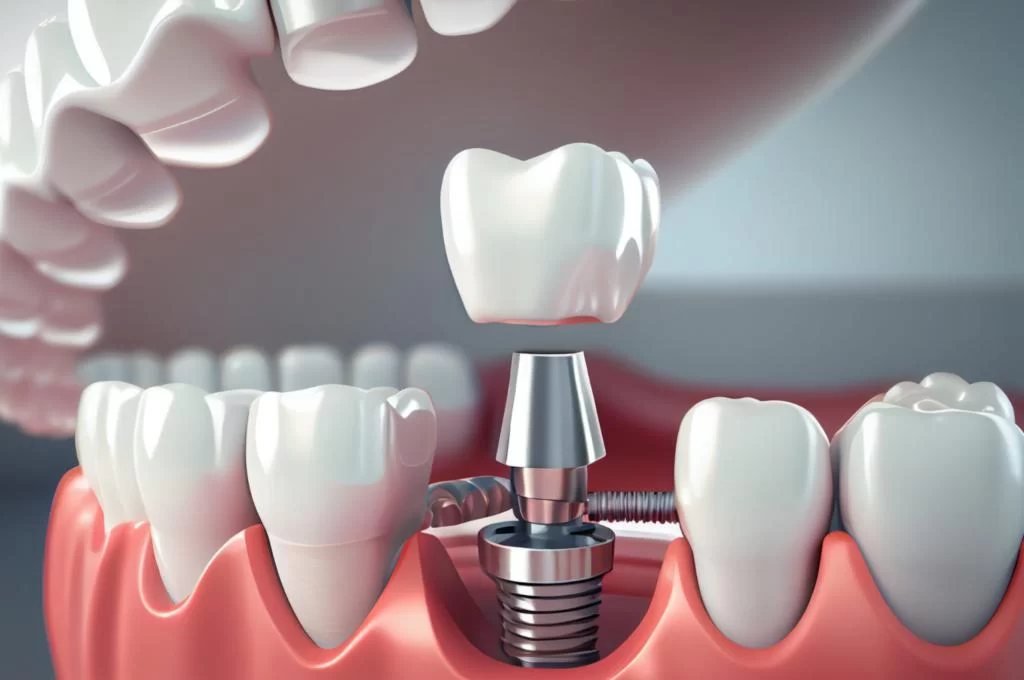
What Are the Alternatives to Dental Implants? Exploring Non-Surgical Teeth Replacement Options
- Understanding Dental Implants
- Why Consider Alternatives to Dental Implants?
- Dental Bridges: A Popular Alternative
- Dentures: Full or Partial Solutions
- Dental Crowns: Strengthening and Restoring
- Other Non-Surgical Alternatives
- Real-Life Stories: Choosing the Right Option
- Conclusion: Making the Right Choice for Your Smile
Dental implants are a popular and long-lasting solution for replacing missing teeth. However, not everyone is a candidate for implants due to factors like cost, health conditions, or personal preference. Fortunately, there are several alternatives to dental implants that offer effective solutions for restoring your smile and functionality.
Why Consider Alternatives to Dental Implants?
While dental implants offer a durable and natural-looking solution for missing teeth, they are not always suitable for every patient. Some reasons to consider alternatives include:
- Cost: Dental implants can be expensive, often costing thousands of dollars for a single tooth. Some patients may find the cost prohibitive.
- Health Conditions: Certain medical conditions, like osteoporosis or uncontrolled diabetes, may limit the ability to undergo implant surgery.
- Time and Recovery: Dental implants require surgery and several months of healing, which some patients may not be able to accommodate.
- Preference: Some people prefer non-invasive solutions, such as dentures or bridges, due to their quicker application and fewer risks.
For those seeking a solution that fits their budget, time constraints, or health considerations, there are effective alternatives to dental implants.
Dental Bridges: A Popular Alternative
One of the most common alternatives to dental implants is a dental bridge. A dental bridge is a fixed appliance that bridges the gap left by a missing tooth. It is usually supported by adjacent healthy teeth or dental implants. The process for getting a dental bridge involves two appointments: the first to prepare the teeth, and the second to place the permanent bridge.
Dental bridges offer several benefits:
- Natural Look: Bridges are designed to match the color and shape of your natural teeth, offering a seamless smile.
- Quick Solution: Unlike implants, which require surgery, bridges can be placed in a relatively short time frame.
- Minimal Discomfort: The procedure is less invasive than implants, meaning there is generally less recovery time.
While dental bridges are a great option for many, they do require healthy teeth on either side of the gap for support. If your adjacent teeth are not healthy enough, a different solution may be necessary.
Dentures: Full or Partial Solutions
Dentures are removable appliances designed to replace missing teeth. There are two main types of dentures: full dentures (used when all teeth are missing) and partial dentures (used when some natural teeth remain). Dentures are custom-made to fit the shape of your gums and the structure of your mouth, providing a functional and aesthetically pleasing solution.
Benefits of dentures include:
- Cost-Effective: Dentures are usually more affordable than dental implants, making them a good option for those on a budget.
- Non-Invasive: Dentures do not require surgery, making them a less invasive option for replacing missing teeth.
- Customizable: Dentures can be made to match your natural teeth in terms of shape, size, and color, giving you a natural appearance.
However, dentures can require adjustments over time and may take some getting used to. They may also need to be relined or replaced as your mouth changes shape over the years.
Dental Crowns: Strengthening and Restoring
Dental crowns are another alternative to dental implants. While they are often used to restore damaged or decayed teeth, crowns can also be used in conjunction with dental bridges to replace missing teeth. Crowns are custom-made to fit over a damaged or treated tooth and can help restore its strength and function.
Advantages of dental crowns include:
- Durable: Crowns are made from strong materials, such as porcelain or ceramic, that can withstand the forces of chewing and biting.
- Restores Function: Crowns help restore both the appearance and function of damaged or missing teeth, improving your ability to chew and speak.
- Versatile: Crowns can be used for a wide range of dental issues, including severe decay, fractures, and cosmetic concerns.
While dental crowns are effective at restoring damaged teeth, they may not be suitable for replacing an entire missing tooth. In these cases, a bridge or dentures may be necessary.
Other Non-Surgical Alternatives
There are several other non-surgical alternatives to dental implants that may suit your needs, depending on the condition of your teeth and your overall oral health. Some of these include:
- Resin-bonded bridges: These are similar to traditional bridges but are bonded to adjacent teeth with a resin material, requiring less alteration to the surrounding teeth.
- Snap-on Smile: A cosmetic appliance that fits over your existing teeth, providing an instant smile makeover.
- Flexible partial dentures: These are more comfortable than traditional dentures and can be a great option for patients who need a removable, less-invasive solution.
Each of these options has its own advantages and disadvantages, so it’s important to discuss them with your dentist to find the best solution for your needs.
Real-Life Stories: Choosing the Right Option
Consider the case of Emily, who lost a tooth due to an accident. After weighing her options, she decided on a dental bridge. The procedure was quick, and the results were satisfying. She was able to eat, talk, and smile confidently again without the need for an invasive surgical procedure.
Similarly, James, in his early 60s, opted for dentures after his dentist explained the potential risks of dental implants due to his existing health conditions. Though he initially struggled with adjusting to dentures, he now enjoys a comfortable, functional set of teeth without the worry of surgery.
Conclusion: Making the Right Choice for Your Smile
There are many viable alternatives to dental implants, ranging from dental bridges and dentures to crowns and non-surgical options. The best solution depends on your unique dental needs, budget, and health considerations. It’s important to work with your dentist to choose the option that offers you the best balance of functionality, comfort, and aesthetics.
If you're ready to explore your options further and find the ideal solution for replacing missing teeth, visit Dentistry Toothtruth for expert guidance and services.

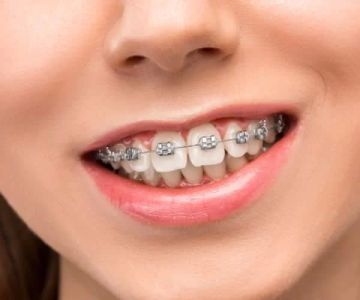
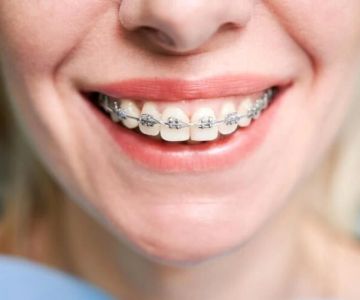
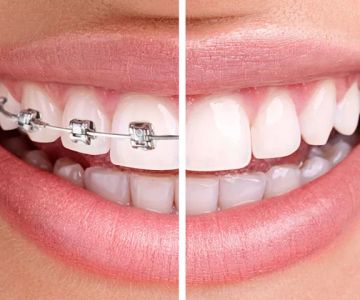
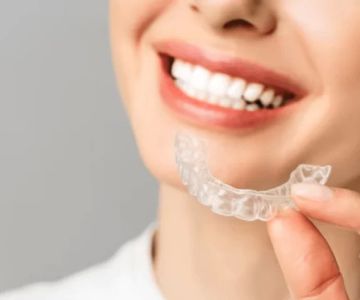
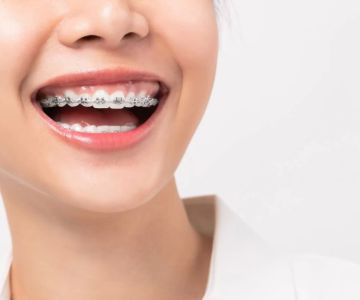
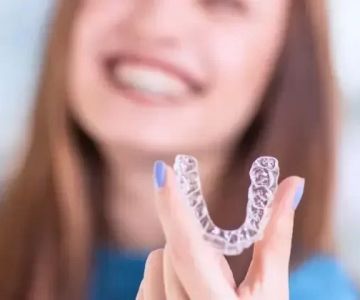
 OMG! Braces4.0 (279 review)
OMG! Braces4.0 (279 review)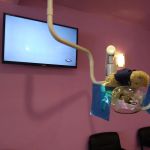 Desert Valley Pediatric Dentistry - West Olive4.0 (705 review)
Desert Valley Pediatric Dentistry - West Olive4.0 (705 review) Sherman Oaks Dental5.0 (64 review)
Sherman Oaks Dental5.0 (64 review) The Loose Tooth Pediatric Dentistry & Aligned Orthodontics4.0 (387 review)
The Loose Tooth Pediatric Dentistry & Aligned Orthodontics4.0 (387 review) Valleywise Community Health Center - Mesa3.0 (252 review)
Valleywise Community Health Center - Mesa3.0 (252 review) Dental Office0.0 (0 review)
Dental Office0.0 (0 review) The Importance of Oral Health Education During Pregnancy for a Healthy Pregnancy
The Importance of Oral Health Education During Pregnancy for a Healthy Pregnancy Best Tips for Brushing Your Teeth Properly for Healthy Gums: Essential Techniques for Oral Health
Best Tips for Brushing Your Teeth Properly for Healthy Gums: Essential Techniques for Oral Health Why Skipping Dental Checkups Can Lead to Bigger Oral Health Problems
Why Skipping Dental Checkups Can Lead to Bigger Oral Health Problems Advantages of Porcelain Dental Restorations
Advantages of Porcelain Dental Restorations How Can Diabetes Cause Tooth and Gum Problems? Preventing and Managing Oral Health Issues
How Can Diabetes Cause Tooth and Gum Problems? Preventing and Managing Oral Health Issues Healthy Habits for Promoting Good Oral Health and Hygiene: Tips for a Healthy Smile
Healthy Habits for Promoting Good Oral Health and Hygiene: Tips for a Healthy Smile